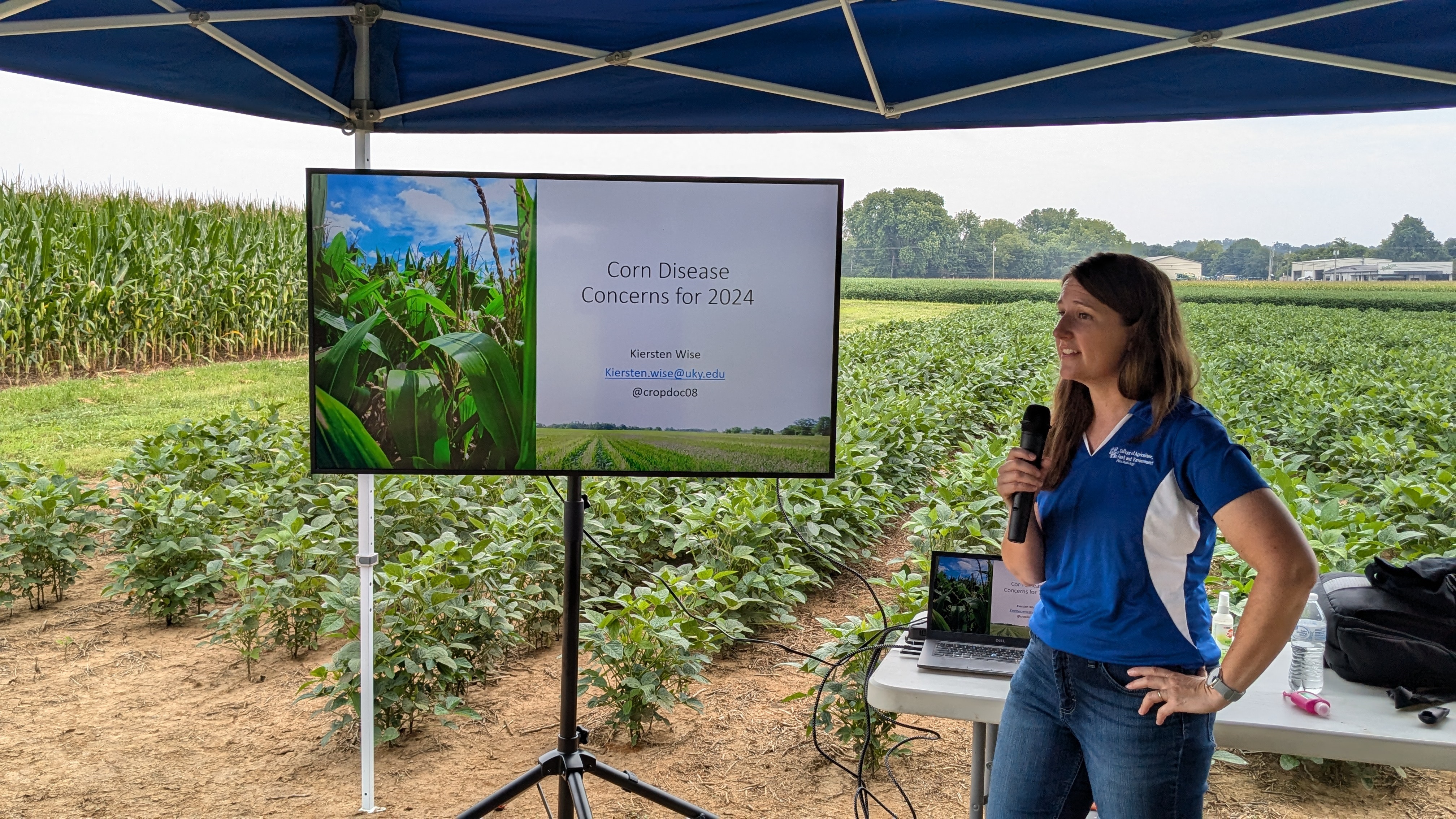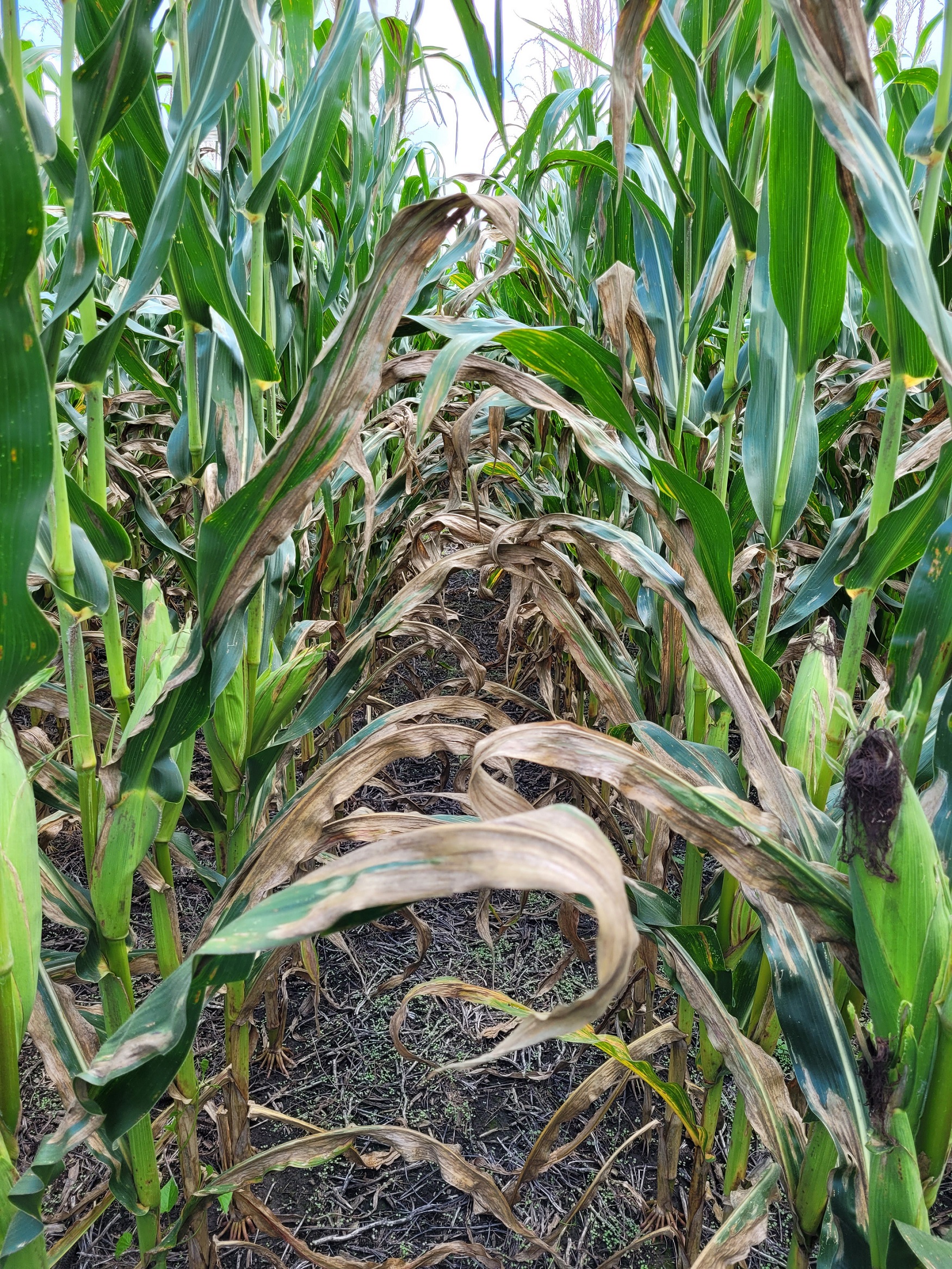University of Kentucky researcher uncovers fungicide resistance threat, providing crucial findings for farmers
University of Kentucky researcher uncovers fungicide resistance threat, providing crucial findings for farmers


As the agricultural landscape evolves, so do the challenges that farmers face. University of Kentucky Martin-Gatton College of Agriculture, Food and Environment researchers are uncovering a growing threat to corn production: fungicide resistance. A study published in Plant Health Progress reveals evidence of resistance in a common corn pathogen, revealing a need for judicious fungicide use to ensure their long-term effectiveness.
The research, titled “Sensitivity of the Causal Agent of Northern Leaf Blight of Corn, Exserohilum turcicum, to the Demethylase-Inhibiting Fungicide Flutriafol,” initially focused on northern corn leaf blight (NCLB), a specific corn disease that can cause yield losses in Kentucky and nationwide. The multi-organizational research team investigated the efficacy of a currently used fungicide. As with antibiotic resistance in medicine, the repeated use of the same class of fungicides lead to the development of resistant fungal strains.
“Over time, fungicides can become less effective because repeated use selects for resistant strains in the population. Eventually, the resistant strains become the dominant population and the chemicals can be less effective at controlling the organisms,” said Kiersten Wise, study author and Department of Plant Pathology professor. “If farmers know this, they can understand why it’s crucial to monitor and adapt our disease management strategies.

The research included surveying and testing different strains of the fungus found in corn fields across Kentucky and other states. The goal was to get a snapshot of the current sensitivity of these strains to flutriafol, an active ingredient in a commonly used class of fungicides. The results from populations sampled across the United States revealed that 30% of the 81 strains tested showed reduced sensitivity to this fungicide active ingredient, and 5% were completely resistant in the laboratory.
“We weren’t sure what to expect, but we found strains less sensitive to the fungicide,” Wise said. “In Florida, some strains tested couldn’t be controlled at all by this fungicide in our laboratory assays, which is very concerning. In Kentucky, we detected strains in this assay that were less sensitive than we would like. This indicates that further monitoring is needed. ”
Samples were gathered from fields displaying disease symptoms around the south and midwest. The results showed a range of sensitivities, highlighting the need for vigilant management practices.
“Every time you spray, you’re selecting for what’s naturally resistant in the population,” Wise said. “Over time, this means that the only fungi left are those that the fungicide can’t control. We want to avoid this in Kentucky.”
Another key factor is that cross-resistance exists within this fungicide class, meaning that resistance to one active ingredient in the fungicide class could mean that other active ingredients in the same fungicide class might also be less effective. Many available fungicides for corn have at least one active ingredient from the fungicide class tested.
Implications for Farmers
This research serves as a reminder that integrated disease management is a proven strategy for combatting resistance and protecting crop yields. Farmers should consider all disease management options available to slow the progression of resistance.
Wise said fungicides are just one tool available in the disease management toolbox. She encourages farmers to use multiple disease management tools, including resistant hybrids, crop rotation and other strategies to help delay resistance development reducing input costs and improving return on investment.
“Our take-home message to farmers is that fungicides play an important role in disease management,” Wise said. “We need to use products judiciously to keep them available to control diseases. Our next steps involve testing other pathogens and fungicide active ingredients to better understand the scope of resistance. Continued research is essential for formulating comprehensive management strategies.”
Researchers from Michigan State University, Corteva Agriscience, Mississippi State University, University of Missouri, FMC Corporation, University of Nebraska-Lincoln, Growmark Inc., Clemson University, University of Florida Everglades Research and Education Center, Iowa State University, Auburn University and Purdue University also participated.
This study was partially supported by FMC Corporation, the Kentucky Corn Growers Association and Indiana Corn Marketing Council.
###
Writer: Jordan Strickler, jstrickler@uky.edu
The Martin-Gatton College of Agriculture, Food and Environment is an Equal Opportunity Organization with respect to education and employment and authorization to provide research, education information and other services only to individuals and institutions that function without regard to economic or social status and will not discriminate on the basis of race, color, ethnic origin, national origin, creed, religion, political belief, sex, sexual orientation, gender identity, gender expression, pregnancy, marital status, genetic information, age, veteran status, physical or mental disability or reprisal or retaliation for prior civil rights activity.
Research

